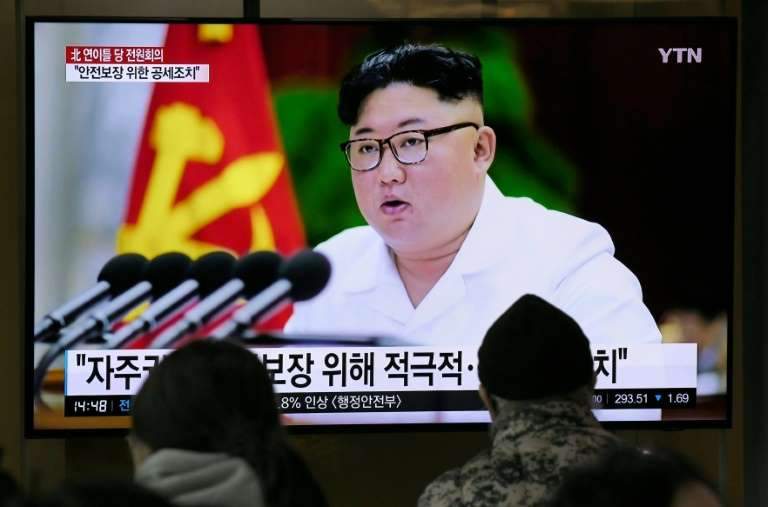North Korea says may seek 'new path' of weapons build-up
Wednesday, January 22, 2020
Categories: ASCF News Emerging Threats National Preparedness

Pyongyang on Tuesday warned that it could seek a "new path" and accelerate its weapons programme, after Washington imposed fresh sanctions on North Korean companies amid stalled nuclear talks.
North Korean representative Ju Yong Chol told the Conference on Disarmament in Geneva that his country's efforts to improve relations with Washington had been met with hostility.
"Although the US is talking about the resumption of dialogue, it has no intention at all from the beginning to drop its hostile policy towards the DPRK (Democratic Republic of Korea)," he said.
"The DPRK will steadily develop strategic weapons essential and prerequisite for national security until the US abandons its hostile policy and lasting and durable peace... is in place on the Korean peninsula," he said.
He said the scope of the build up would depend on the "future attitude" of the US.
Pyongyang has previously fired missiles capable of reaching the entire US mainland, and has carried out six nuclear tests, the last of them 16 times more powerful than the Hiroshima blast, according to the highest estimates.
North Korean leader Kim Jong Un declared in December an end to moratoriums on nuclear and intercontinental ballistic missile tests, which had been a centrepiece of two years of diplomacy with US President Donald Trump.
Trump and Kim have held three meetings since a landmark summit in Singapore in June 2018, where the two men signed a vague statement on denuclearisation.
But negotiations have been deadlocked since a second summit collapsed in Hanoi last year over sanctions relief and what the North would be willing to give up in return.
- 'Sanctions and pressure' -
Earlier in January, the United States announced that it was freezing any US assets of two companies for exploiting North Korean overseas labour, making any transactions with them a crime, in a UN-backed bid to curb Pyongyang's cash flow.
US officials said in 2017 that North Korea had some 100,000 overseas workers, bringing in $500 million a year.
If the US "persists in imposing sanctions and pressure against my country, we may be compelled to seek a new path for defending our sovereignty and supreme national interests," Ju said.
"As it became clear now that the US remains unchanged in its ambitions to block the development of the DPRK and stifle its political system, we have found no reason to be unilaterally bound any longer by the commitment that the other party fails to honour," he said.
Ju did not specify which specific commitments he was referring to, but the US Ambassador to the disarmament body, Robert Wood, told reporters he found the comments "quite concerning".
"My hope is that they are not talking about moving away from that agreement that was reached by President Trump and Chairman Kim in 2018," he said.
"What we hope is that they will do the right thing, and come back to the table and try to work out an arrangement whereby we can fulfil that pledge that was made by President Trump and chairman Kim to denuclearise."
Photo: © Jung Yeon-je North Korean leader Kim Jong Un in December declared an end to North Korea's moratoriums on nuclear and intercontinental ballistic missile tests











